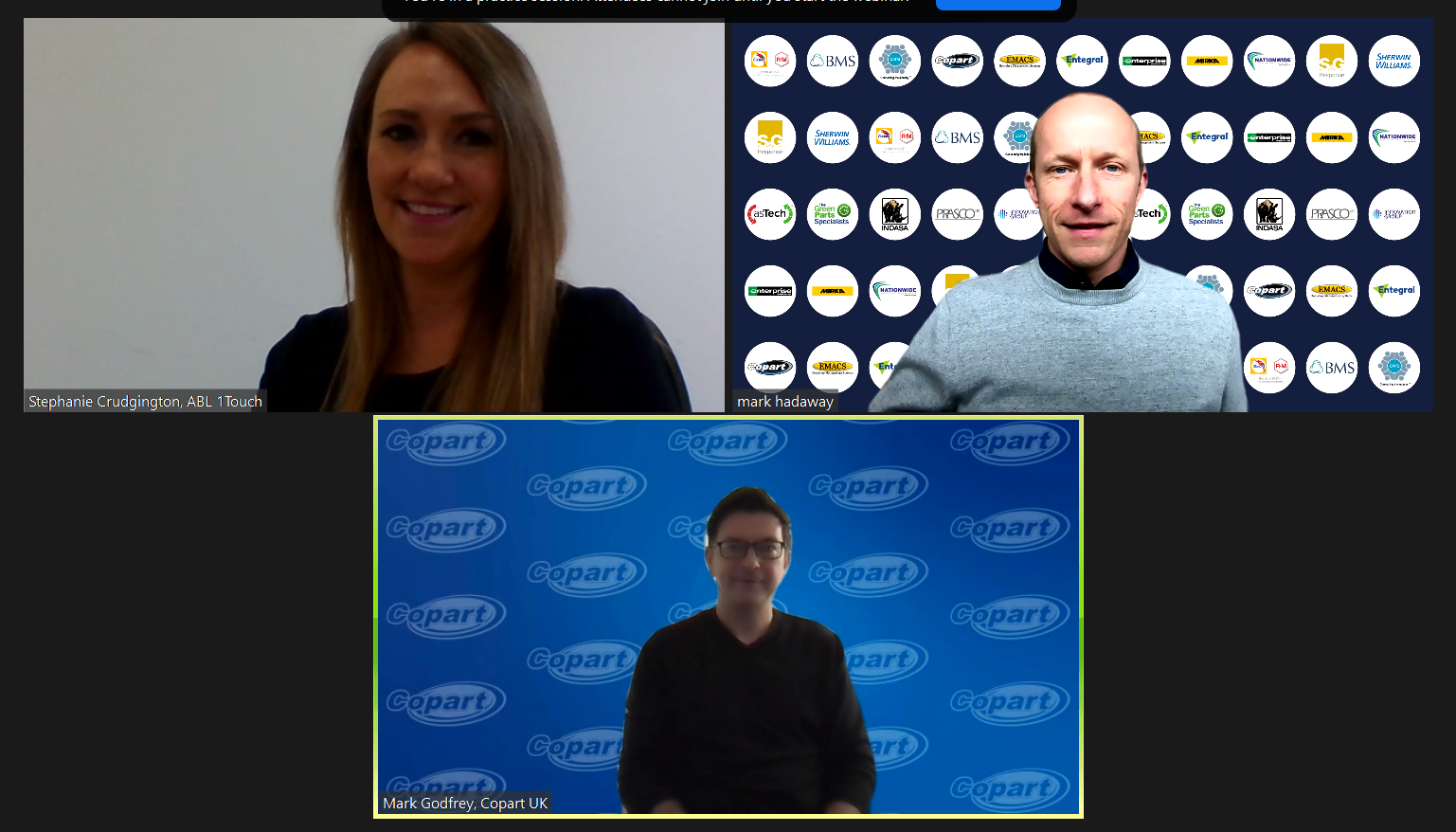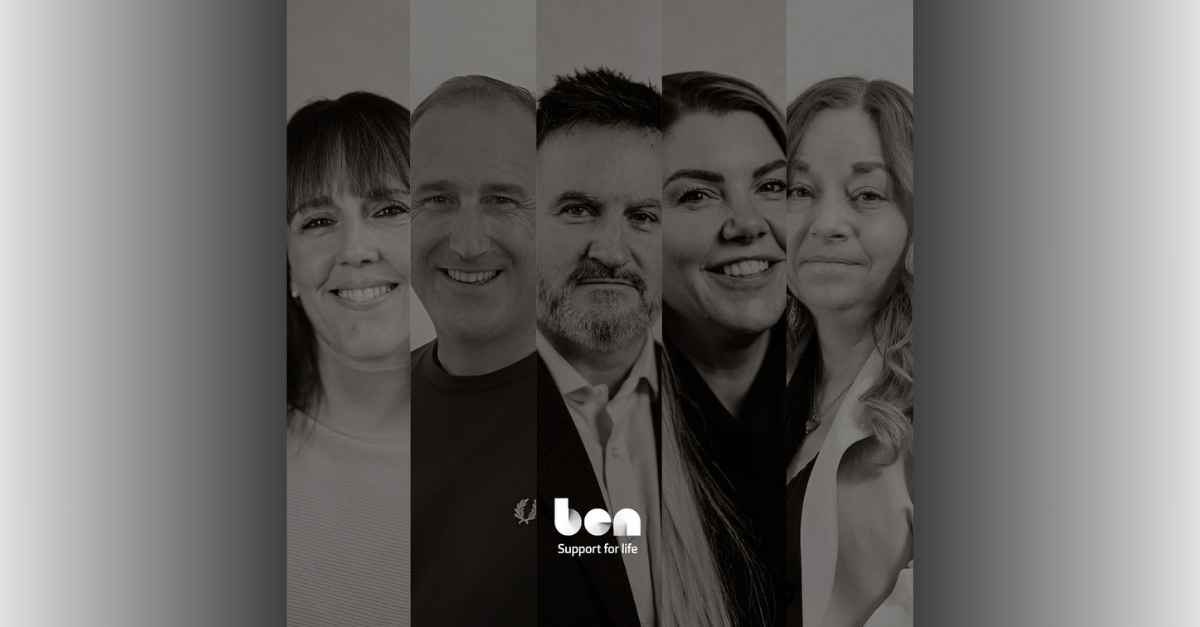The Future in Focus digital event, hosted by ARC360 in association with I Love Claims, turned its spotlight on an intangible yet intrinsic part of any business with its session entitled, Cultures, People and Productivity.
There is no doubt that organisations have placed a greater value on employees, engagement and working environments in recent years, and that focus has only intensified during the pandemic.
In this session, panellists Stephanie Crudgington, head of HR, ABL 1Touch and Mark Godfrey, director, strategy, marketing and automotive division, Copart UK explained why their companies are winning on two key fronts of this war – recruitment and retention.
Retention
Stephanie said, ‘The priority is always our people.’
She explained how ABL 1Touch has been raising awareness around mental health issues, which have been exacerbated by Covid-19. She said the company has been communicating to staff that support is available while also offering guidance around flexible working and maintaining a work-life balance.
She said that as part of this, ABL is working with T-Cup, a wellness app, which enables businesses to monitor its employee’s health and wellbeing status, and provide a platform for pro-active interventions. Stephanie said that the data that comes back will inform ABL’s strategy on how best to support its staff.
She said, ‘We’re doing this because we care for our staff and want them to be ok.’
Valued
Alongside wellness, feeling valued at work is another fundamental aspect of employee engagement and satisfaction. Many surveys in recent years have found that this is an even higher priority to employees than salary.
Mark said, ‘Everyone needs a sense of purpose and a sense of direction. You need to explain where the company is going and what part each individual is playing in it. One of our values is that everyone can act like an owner. That way everyone thinks they can make a difference, they know why they’re vital to the business and how they can help.’
Recruitment
But keeping your existing workforce happy is only half the battle. Increasingly now there is a battle for talent and companies are challenged to sell themselves to potential employees as much as the other way around.
This is only going to intensify as the skills shortage deepens, while the changes taking place within the industry place a growing demand on new skills.
Mark said, ‘We know things are changing. Covid has accelerated that change so in order to keep adding value to our customers we need to be ahead of that. That means that some of the skill sets we’ll need may be new or different to the past.’
He talks about data science and big data as areas where Copart will need to continue to lead.
Hard to find
Mark said, ‘But great people are hard to find, and it’s even harder to find great people with the newer skills. We motivate skilled people to join us by telling them and showing them the Copart story. If we sell the story of our success and show them how we put people first, it moves them to join us.’
Another selling point is offering clear career progression. Stephanie explained how ABL 1Touch has created a separate talent acquisition website, which explains the company’s values to people outside the industry who perhaps don’t know the business, while also highlighting case studies of employees who have progressed through the company.
She said, ‘What people are craving now is development, and we talk about how we’re really passionate about developing our staff. Of course, not everyone wants to be a production manager and that’s fine. Some people are happy working in a nice environment with nice people, but if they do want to develop we make sure they have the opportunity. We don’t just talk about it, we make it happen.’
Culture
Of course, none of this stands up if the company has not established a culture that attracts and inspires people in the first place. Employees today want to feel aligned to their employer’s values and ethics, and increasingly want to feel that what they are doing contributes towards the greater good.
For Copart, the culture challenge has been retaining its family feel despite operating in 22 countries around the world. But it’s a challenge Copart is winning.
Mark said, ‘The culture here feels orientated around family. It’s easy to say but I don’t say it cheaply because if you understand Copart’s values you do feel part of a family. From a business point of view, the focus is on creating and delivering value for our customers because if we don’t do that we don’t grow, but underpinning all that is our people. It’s our people who make that happen.’
Stephanie agreed, ‘The priority of my role is to protect and develop the culture here so it’s an attractive place to come and work. Culture is the centre of everything we do.’
Communication
That culture then needs to shared and reinforced on a regular basis. It needs to be central to everything the company does.
That has not been easy to achieve during Covid-19, when remote working has disrupted communication channels in ways that couldn’t have been foreseen.
Mark said, ‘We’re really keen to create an open culture for communication. It’s too easy to be two or three layers removed, but we’ve created new platforms to encourage better and easier communication, and we’ve introduced training for managers to be better listeners.
‘We’ve really worked hard on communicating outwards and downwards to really drive that sense of belonging and value across all our diverse people and teams; a phrase we often use is bring your real self to work, which embraces diversity and tolerance.’
Disruption
And the disruption has not always been negative. Mark says that remote working has actually enabled people to get to know each other better as they are talking to each other more often and in their natural environments.
But there is no doubt technology can’t completely replace personal interaction.
Stephanie said, ‘I don’t doubt electronic meetings will continue, but we’re keen to get back to face-to-face meetings. I can’t wait to get out to the sites again.’

















